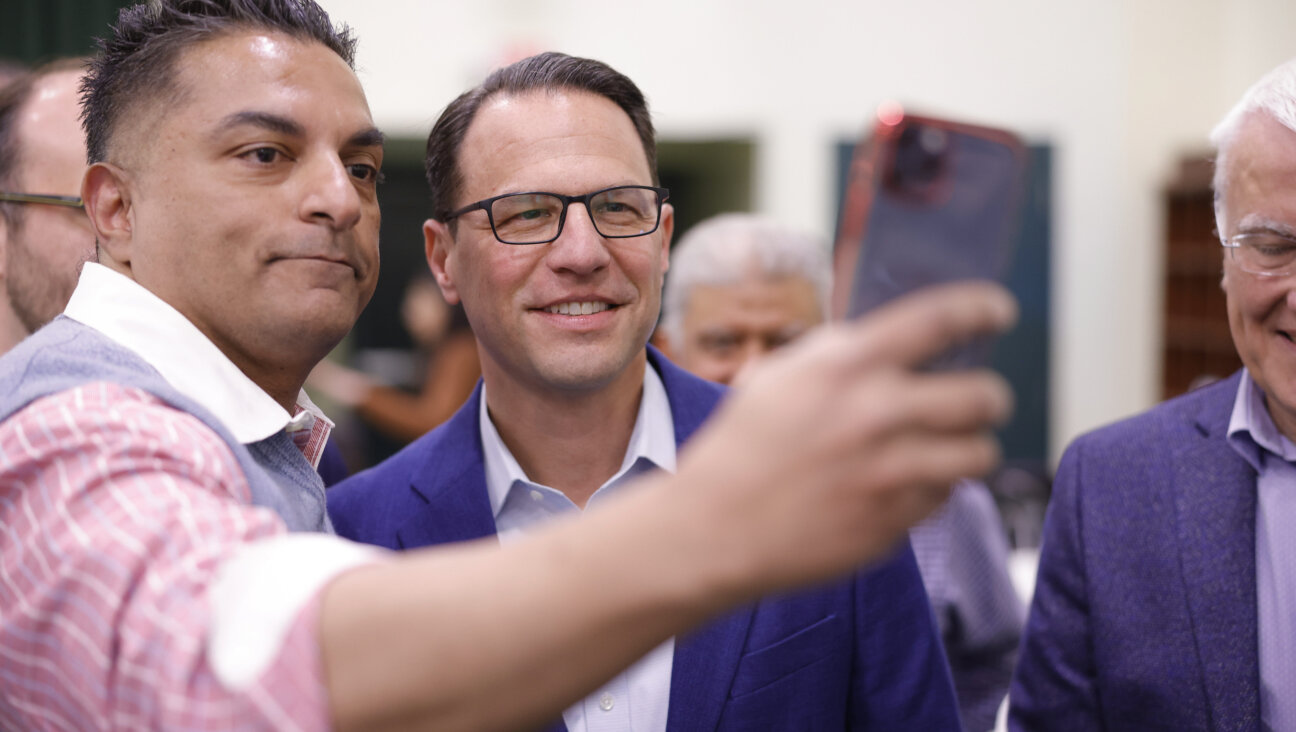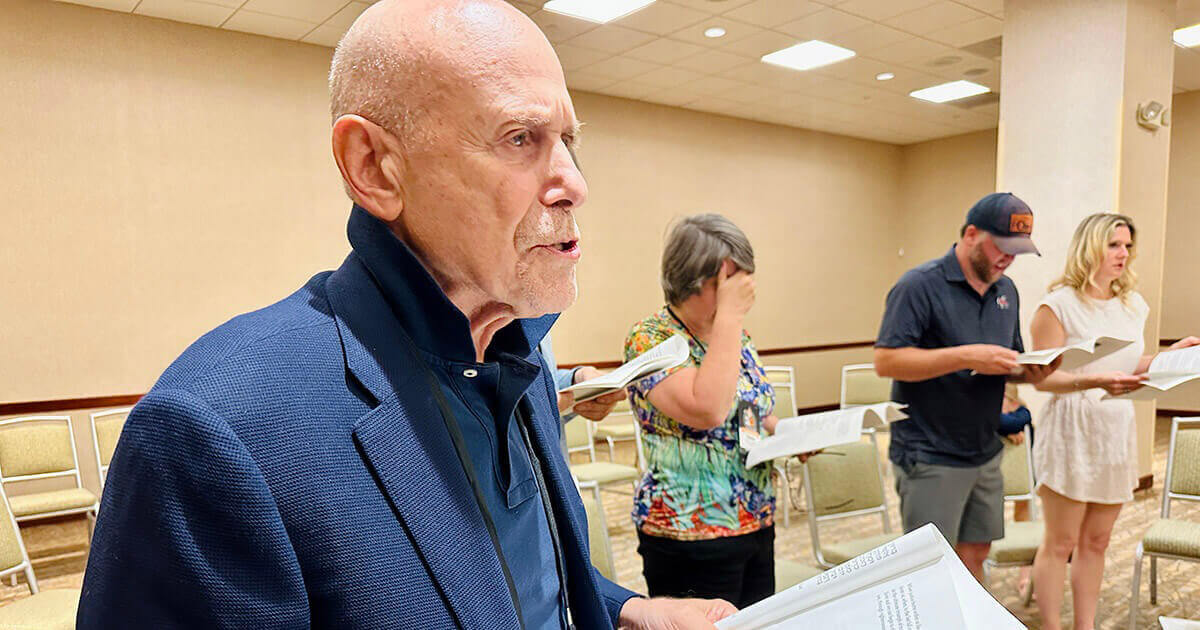Secrets of the City
A SERIALIZED NOVEL
By Anne Roiphe
CHAPTER 68: THE FINAL CHAPTER
* * *|
This is the final installment of Anne Roiphe’s serialized novel, “Secrets of the City,” which can be found online at www.forward.com. A hardcover version of the novel will be published in October by Random House’s Shaye Areheart Books imprint.
In Chapter 67, a battle between yeshiva boys over the beauty of Vivien Leigh vs. Ingrid Bergman was discovered to be responsible for the snow-covered corpses.
The Imp of Longwindedness and the Demon of Not Knowing When To Go Home were howling with laughter, and the author of this serial novel was cut to the core by their mocking jibes and decided to bring the plot to its close. The loose ends needed to be knit together. The fate of the characters had to be revealed. The reader will see that this was done rapidly and succinctly. What might have taken years to spin has been woven together with dispatch. This, in a modern world, is the way it should be.
* * *|
Ina and Sergei received a major science prize. Ina received a letter from Dr. Bergen, who had read about the award in the paper. She kept the letter in her jewelry box. Leonid and Vladi made a fortune and were expanding their business. Leonid gave Sergei a large check so he and Ina could buy their apartment. “What are brothers for?” he had said. Brooke had converted. Leonid had a girlfriend, a model from Jamaica.
By the time the following Thanksgiving came round, even more security men were following Mel and Ruth about. “No cameras,” said Ruth. “This is a private family matter.”
“No cameras,” Mel said. “No reporters either.” Ruth put out her silver candlesticks, which weren’t really silver because the originals had been pawned in order to pay the obstetrician when Jacob was born.
The afternoon of Thanksgiving the family gathered around the table. Moe Alter was there; his children were with his ex-wife. Leonid arrived with his fiancee, Harold had come in a beautiful pink suit that Leonid admired. Kelly’s hair was long, and Kim’s was short, and one could see that they had different ideas about things. Kelly’s face was no longer ashen, and her eyes were bright, and she held her mother’s hand under the table.
The room was hot. The windows were open, but the steam from the kitchen permeated everything. Ruth wiped her forehead. She took a deep breath. There didn’t seem to be enough air in her lungs. She felt a pain in her chest, a slight pain. She stood up, wanting privacy, needing to be alone, just for a moment. A moment later she was down on the floor. Mel stood over her his wife.
“Ruth,” he yelled into her ear as if the problem were a sudden deafness. Moe whipped out his cell phone. Jacob pulled his from his pocket. Ina and Sergei bent down over Ruth, listening for a heartbeat. Kim and Kelly began to cry. Ina and Sergei’s little girl put her head in her father’s lap and her hands over her ears.
The paramedics arrived and lifted Ruth up onto a stretcher and carried her out. The security men raced into the street to follow the ambulance. Ina wasn’t quite sure if her mother was still breathing. The paramedics disappeared with Ruth into the back of the ambulance. Mel wanted to ride with them. But the security guards insisted on coming along, and they all couldn’t fit in the ambulance. The hospital was close by. The family would follow.
Mel, shocked into silence, his own heart pounding, was pushed by the security guards into their car. Ina, who had never been quite sure if she really loved her mother, was sure now.
The food remained on the table, and the candles burned down. The lady hired to clean up was not sure if she should wait or pick up the dishes. The Thanksgiving had ended before Mel had made his speech praising America with all its checks and balances, all its brilliant laws designed to blunt the natural cruelty of man. Now they were all back in the real world.
* * *|
Ruth was dreaming — if a person who has lost consciousness, whose heart is leaking, can be said to dream. She saw herself on a long journey, with a backpack and the red sandals she had worn in college. She saw the swirling dust of the desert and the long line of people walking and walking. In her dream she wasn’t worried. She wasn’t sad.
Ruth was on a journey, which was the way it was supposed to be. You weren’t expected to arrive, but you
were expected to move forward. Ruth understood this. She understood that she was going to die, and she wasn’t all that surprised. She wished she could go back and comfort her family, but she realized that comforting her family was a habit a person could unlearn. No one soul is really necessary in this world. She had done her part. The sojourn in the desert had a purpose, even if she couldn’t figure out what.
Mel was sitting in the waiting room. Jacob and Ina were there, Moe was talking on his phone to the editor of the Metropolitan Herald, demanding a front-page obituary. The children were asleep on the chairs, half-drunk soda cans resting against the wall. No one seemed to want to leave. No one seemed to know what to do. The Imps of Misfortune, the Spawn of Lilith despite themselves were weeping. This was not what they had intended.
* * *
Think of the pages of the calendar flipping past the way they used to in movies made more than a half-century ago. Over the numbered pages with the names of the months on the top, as they quickly appeared and disappeared from view the audience could see leaves falling or blossoms growing or snowdrifts piling high or bells ringing. Time is passing. Time has passed. How long? Just the right amount to bring us to the place we are now.
* * *|
Here he is. We are in a room, with a makeup woman brushing powder on Mel’s nose. The full cast has assembled here with him. Ina and Sergei, Brooke and Jacob and the children and Leonid and his new wife, who for reasons of multicultural appeal has been asked by Moe to stand at Mel’s right. Rabbi Gedali is here to stand with Mel, or rather discretely behind him, to provide the proper religious note, to indicate God’s approval of the party’s choice. “You’re our Queen Esther,” the rabbi whispers into Mel’s ear. “No wonder,” Mel answers, “I have the support of the transgendered.” Fortunately Rabbi Gedali does not quite catch his words.
Don’t blame Rabbi Gedali for not comparing Mel to King Solomon or King David. By now the rabbi knows Mel too well for that. Also in his rabbinic heart he does not believe in Jewish kings. In fact, he does not believe in Kings.
“Isn’t it exciting?” Jacob says to Kim. “Oh, phony baloney,” she answers, but is bouncing up and down just the same. “You look fine,” Ina tells her father. He grins his grin at her. “Are you sure?” he asks. “What would your mother say?” “Mom would say, ‘You’re a ham,’” Ina says. “I am a ham,” Mel says. “I do like a crowd.” “You have a big one tonight,” says Moe, “not merely the 140,000 in the stadium, but with prime time national hookup you might say you’ve got the whole country all ears.
Audrey and Anston Hadley are in the front row of the balcony. “I wouldn’t have believed it,” Anston says. “My father wouldn’t go duck hunting with one of those people, and now look, the top job is within his reach.” “I don’t think Mel duck hunts,” says Audrey. “He doesn’t even play golf,” Anston says. “Have you ever heard of an American who doesn’t play golf?” “Ruth should have been here,” says Audrey.
Balloons are ready to fall, cradled in nets above the audience. Camera lights are flashing. Music is playing. “The speech,” says Moe, “stick to it. Don’t try to wing it.” Mel grins. “What I’m good at,” he says, “is winging it.” “Not tonight,” said Moe.
Jacob looks at his father and sighs. There is no question now that he will never be able to outstrip his dad, that he himself will be a mere footnote in history, unless, of course, this was the beginning of a dynasty. Even in America there are dynasties. That thought brought lightness to his step as the whole entourage walks through the underground passage with the cameras rolling backward before them, up to the stairs that will take them to the elevator to the platform and then the crowds will scream and yell, “Tell ’em Mel,” “Tell ’em Mel.”
“Rosenberg lives! Rosenberg lives!” so the chant goes. They mean this one, not the other one, who in the excitement of the moment has been forgotten by all but a few grouchy old talking heads who found the name ominous.
Soon Maddie Miller, covering the convention for a major network, will speak into her microphone. Balloons red, white and blue will be falling and falling. Ina will have tears in her eyes because her mother really should have been there, and Mel will wave the crowd into silence, which will take a long time and then he’ll say to all assembled — those in the stadium, those in their living rooms, those with radios in trailer parks, those staring up at the TV from their bar stools and those with flat TVs that stretch more yards than a rock star’s cruise ship — to all, he would say, “My fellow Americans.”
A message from our editor-in-chief Jodi Rudoren

We're building on 127 years of independent journalism to help you develop deeper connections to what it means to be Jewish today.
With so much at stake for the Jewish people right now — war, rising antisemitism, a high-stakes U.S. presidential election — American Jews depend on the Forward's perspective, integrity and courage.
— Jodi Rudoren, Editor-in-Chief






















